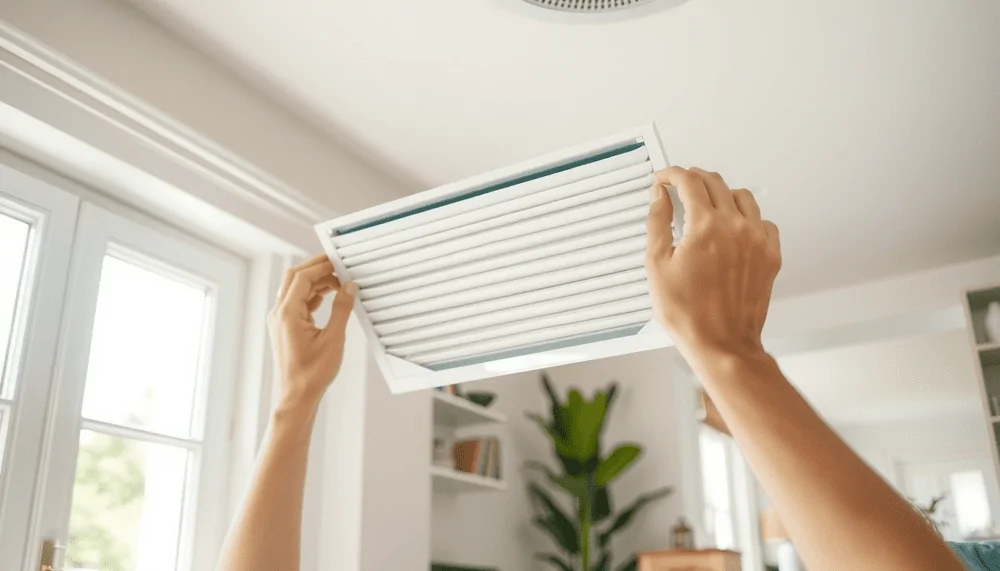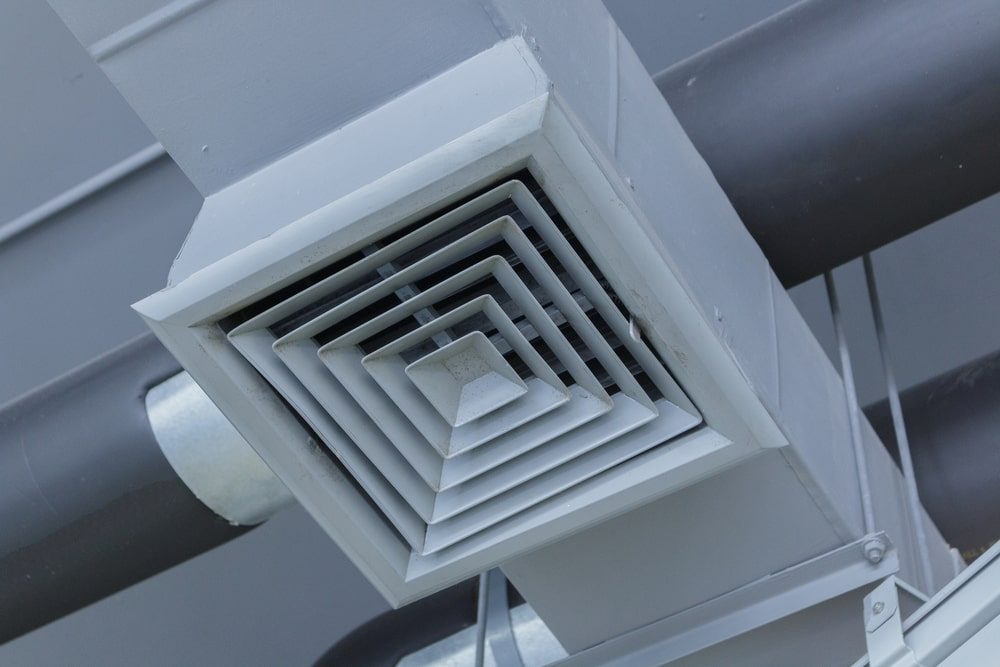Key Takeaways
- Check your filter monthly and change it at least every three months during heavy use; if you have pets or dust, change more often.
- Follow your equipment’s specs when choosing a filter; a higher MERV is not always better if it chokes airflow.
- Dirty filters raise bills and wear out parts. According to the U.S. Department of Energy, clogged filters reduce airflow, hurt efficiency, and can lead to premature failures.
- Pets, projects, and pollen seasons all shorten filter life; plan on more frequent changes in those periods.

If your Charlottesville home feels dusty or your allergies never quite ease up, your HVAC filter may be the culprit. The right filter type, and a consistent replacement schedule, makes a major impact on air quality and system efficiency. In this guide, The Otter Guys explain how to choose filters that match your home’s needs, how often to change them, and why routine maintenance keeps your air cleaner year-round.
How Often Should You Change Your Air Filter?
There is no one-size interval for every house, but a reliable starting point is this: look every month, swap by three months during heating or cooling seasons. Checking monthly and changing at least every three months prevents airflow drop and keeps the system from working harder than it should.
From there, adjust based on your home:
- Run the system a lot, or notice visible dust quickly, shorten the interval.
- Have pets, aim closer to 30–60 days in peak seasons. The U.S. Department of Energy specifically calls out homes with pets or dusty conditions as needing more frequent checks and changes.
- Travel often or use the system lightly in shoulder seasons, and you can stretch toward the three-month mark.
Tips For Choosing The Right Filter
Think of filters in two buckets: how much they capture (MERV rating) and how easily air can pass (pressure drop). A very high MERV filter that starves airflow can backfire, so match the filter to your equipment and ductwork.
- Start with your system’s manual or a quick call to us. According to the EPA’s homeowner guidance, you should consult your HVAC manual or a professional before changing filter types so you do not unintentionally reduce airflow or stress the blower.
- Target the middle for most homes. Many residential systems are happiest with quality pleated filters in the MERV 8-11 range that balance capture and airflow. If allergies or asthma are a major concern, ask whether your system can handle MERV-13 or a dedicated air-cleaner cabinet without raising static pressure too high.
- Size matters. A filter that is even slightly undersized can whistle, bend, or let air bypass around the edges. Check the frame and replace it with the exact dimensions.
Types Of HVAC Filters And Typical Lifespans
You will see three common options at the store:
- Fiberglass (throwaway): Lowest capture, lowest cost. Many need replacement about every 30 days in active seasons because they load quickly and protect equipment more than they improve air quality.
- Pleated (disposable): Better capture for dust, dander, and pollen; common in MERV 8–13. Most last 60–90 days, shorter with pets or renovations. According to ENERGY STAR, a three-month maximum during heavy use keeps airflow healthy.
- Washable/reusable: Handy but easy to neglect; follow the manufacturer’s cleaning procedure and make sure they are completely dry before reinstalling so you do not introduce moisture to the return.
If you want to improve filtration without choking airflow, ask about adding a media cabinet with a deeper (e.g., 4-5 inch) pleated filter. The larger surface area often means better capture with less resistance, so your blower does not struggle.
Set It And Forget It: Smart Reminder Ideas
Even pros forget a filter swap when life gets busy. Pick one:
- Phone reminders – Set a recurring monthly notification labeled with your filter size.
- Calendar stickers – Put a small sticker on your return grille with the date you installed the filter and the due date.
- Filter subscription.- If you prefer mail-order, schedule deliveries at your preferred interval to force the habit.
- Tune-up pairing – Tie filter changes to spring and fall service, so the tech replaces it, checks airflow, and resets your baseline.
What Happens If You Don’t Change The Filter?
Short answer: higher bills, lower comfort, and more repairs. A clogged filter:
- Reduces airflow – Which can cause coils to ice in summer or push temperature rise out of spec in winter.
- It lets dirt bypass to the coil – Which insulates the coil and makes heat transfer worse. According to the U.S. Department of Energy, dirty filters reduce airflow and can lead to early component failures if neglected.
- Aggravates indoor air quality – Dust and dander circulate longer, which can bother sensitive noses and lungs.
If your system seems to run forever, rooms feel stuffy, or returns sound louder than usual, check the filter first. One five-minute swap can solve what feels like a “big” problem.
Why Maintenance Ties It All Together
Filter changes are the foundation, but they work best as part of a routine plan. A proper service visit checks safety controls, electrical health, refrigerant circuit, condensate drainage, temperature split, and airflow, then resets your baseline with a fresh filter. According to the U.S. Department of Energy’s maintenance guidance, replacing or cleaning filters and keeping coils clean are critical to efficiency and reliable performance.
Here is how we structure it in Charlottesville:
- Early summer visit – We tune the cooling side before hot, humid weather. You get clean coils, verified refrigerant performance, a clear condensate line, and a new filter.
- Fall visit – We prepare the heating side before the first cold snap, confirm safe operation, check airflow and temperature rise, and swap in a fresh filter, so the season starts clean.
If you want a simple, low-effort path to better air and better efficiency, start with AC maintenance. The page outlines what we check and how it extends to the full HVAC system across the year.
Let The Otter Guys Make It Easy
Cleaner air and lower bills are not complicated. Pick a filter your system can handle, check it monthly, change it on time, and pair the habit with seasonal maintenance. We can help you choose the right MERV, set a realistic schedule for your home, and handle the swap during service so you never fall behind. Schedule your appointment today!





